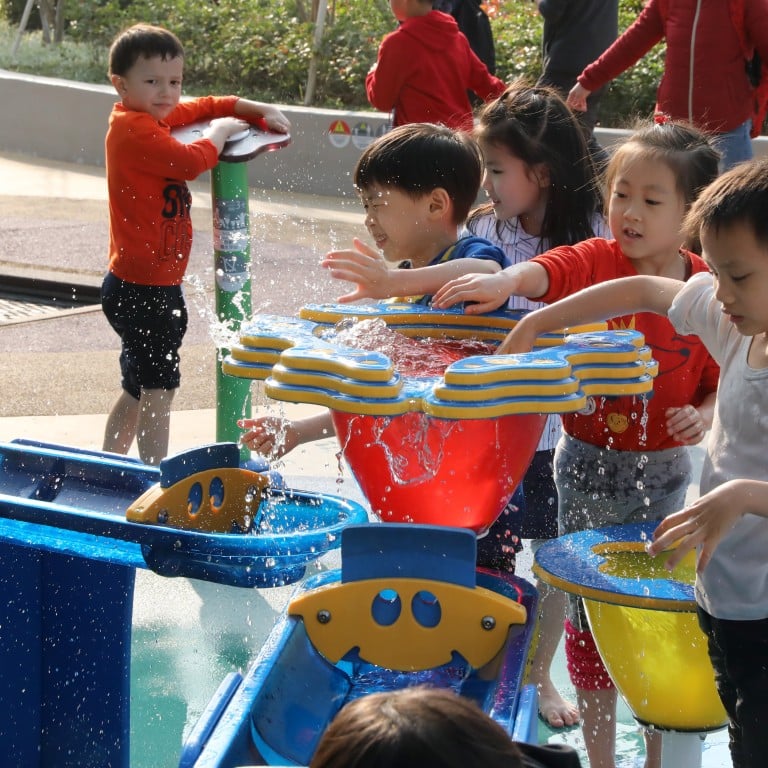
Almost every primary school pupil in Hong Kong spends more than an hour on homework – with some taking up to four hours
- Survey released to coincide with Children’s Day sparks calls from experts to give city’s young more free time
- ‘Children need space … to do nothing and daydream, play or do whatever they want,’ says Dr Phyllis Chan from Queen Mary Hospital
Almost every primary school child in Hong Kong spends more than an hour a day on homework – with almost 4 per cent taking four hours or more – a survey released to coincide with Children’s Day on Thursday has found.
The findings sparked calls from experts to give the city’s young greater free time.
“Children need more space,” said Dr Phyllis Chan Kwok-ling, head of child and adolescent psychiatry at Queen Mary Hospital in Pok Fu Lam.
“I tell parents time spent on homework should be under an hour,” Chan said, adding parents should not arrange tutorials or other extracurricular activities to fill up the spare time.

The survey, conducted from July to December last year, polled 2,038 parents and 18 representatives from primary schools.
It found 98 per cent of parents with children in junior primary grades, aged six to eight, and 97 per cent of those in senior primary grades, aged nine to 11, said it took one hour or more to complete homework every day.
Among them, around 3 to 4 per cent took four hours or more to complete the task.
Lily Li Xiaowu, 33, said her eight-year-old daughter spends more than two hours a day trying to finish her homework.
“She has at least eight pieces of homework every day, and even more to do for the weekend,” Li said. “It breaks my heart to see her so stressed out by the amount of homework she has to do.”
Li said her wish was that schools could cut back on overloading pupils with homework so they can finish them within an hour.
“That way she can at least spare some time to go outside and play for a while, even if it is only for half an hour,” she said.
Playgrounds in Hong Kong are uninspiring, but one NGO is trying to change that
Christopher Yu Wing-fai, director of the non-profit group Hong Kong Institute of Family Education, said it was not surprising for the city’s children to spend more than an hour on homework every day.
“Even if teachers only hand out one piece of homework for each subject, it will take some time to finish them all,” Yu said.
Yu said some schools have wanted to give out less homework, but then received feedback from parents worrying that too little homework would mean their children would not be learning as much.
“It’s a vicious cycle,” he said.
Rather than focusing on how much time it takes for their children to do homework, Yu said parents should understand what kind of homework is being given to children.
“Of course the less homework the better, but what matters is also the quality,” Yu said. “If homework is to help children revise what is being taught, and can show teachers their gaps in knowledge, then that is meaningful.
“Schools should not be giving out homework just focused on drilling or rote memorisation.”
The survey also found children had an average of 80 minutes of leisure time, excluding time spent using electronic products.
Chan said children need plenty of leisure time to relax and develop.

“Leisure time doesn’t mean screen time. It is meant to give a child space to relax and unwind. For example, a child can do nothing and daydream, or play or do whatever they want,” she said.
“It also gives them the autonomy to decide what to do so they will be more creative.”
However parents ranked giving children more leisure time the lowest among 10 items drafted in a Happy Kids Charter by Chan’s team at Queen Mary Hospital.
The charter also stated children aged five to 12 should sleep for 10 to 12 hours a day, should be given free time and should embrace nature. Also, parents should maintain good relations to avoid putting their children under unnecessary stress, it said.
Chan called on the Education Bureau to set up guidelines for schools on homework, tests and examinations.
In response to media inquiries, a spokesman for the bureau said the Committee on Home-School Co-operation, a panel comprising of a bureau official, educators and parents, had been organising activities to promote the Happy Kids Charter for schools and parents.
It also said the government had launched programmes dedicated to promoting students’ mental well-being, and strengthening their ability to cope in challenging situations.


